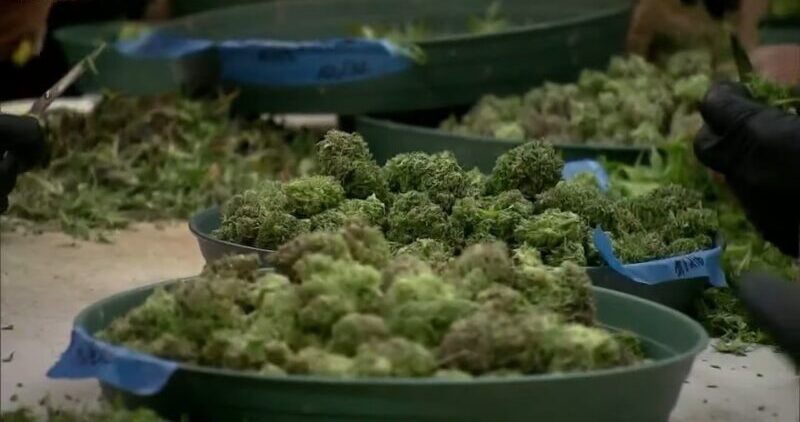Tennessee’s approach to Cannabidiol (CBD) regulation has evolved significantly, especially with the new law taking effect on July 1, 2023. This law is part of a comprehensive regulatory regime aimed at streamlining the use and sale of CBD in the state.
The legal side of cannabidiol in Tennessee reflects a balance between federal mandates and state-specific regulations. As the use of CBD continues to grow in popularity for its various purported health benefits, understanding Tennessee’s legal framework becomes crucial for both consumers and sellers.
Today, we want to address the legal status of cannabidiol in Tennessee, highlighting the key elements of the new law and its implications.
The Introduction of the Tennessee CBD Law
Effective July 1, 2023, Tennessee’s new CBD law introduces significant changes to the regulation of cannabinoid products. This law is a critical component of the state’s regulatory regime, aiming to ensure safe access to cannabidiol while maintaining strict control over its distribution and use.
Key provisions of the law include:
Age Restriction and Sales Regulation
The new Tennessee CBD law introduces stringent age restrictions and sales regulations to ensure the responsible distribution and consumption of cannabinoid products. The law is particularly focused on preventing minors from accessing cannabidiol products, aligning with the state’s approach to regulating substances like alcohol.
- Mandatory Age Verification: Retailers selling CBD products are required to check the identification of their customers to confirm they are 21 years of age or older.
- Penalties for Selling to Minors: The law classifies the act of knowingly selling or distributing cannabinoid products to anyone under the age of 21 as a Class A misdemeanor.
- Retailer Responsibility: The onus is on the retailers to ensure that their staff are adequately trained and informed about the age restriction laws.
- Legal Consequences: Retailers found in violation of these regulations can face legal consequences, including fines and potential loss of business licenses.
- Public Awareness: The law also aims to raise public awareness about the age restrictions on CBD sales.
Retail Storage Requirements

CBD products must be stored behind retail counters and be inaccessible to customers under 21. This measure aims to prevent underage access to cannabidiol, with violations also classified as a Class A misdemeanor.
How About Taxation?
A new 6% tax on CBD sales is introduced, effective from July 1, 2023. This tax is in addition to the existing sales tax, with the first due payments scheduled for August 20, 2023.
Retailers are required to collect this tax monthly and comply with the state’s reporting requirements.
Prohibition of Public Sampling
The prohibition of public sampling of hemp-derived cannabinoid products is a significant aspect of Tennessee’s cannabidiol law, aimed at regulating the consumption and distribution of CBD in public spaces. This measure is designed to maintain public order and safety, ensuring that CBD consumption is controlled and responsible.
| Aspect | Description |
|---|---|
| Scope of the Prohibition | The law explicitly prohibits the distribution of free samples of hemp-derived cannabinoid products in public areas, including streets, sidewalks, parks, and other public spaces. |
| Rationale Behind the Prohibition | The primary reason for this prohibition is to maintain public health and safety. |
| Controlled Consumption | The regulation supports the idea of controlled consumption of CBD. |
| Enforcement and Compliance | Enforcement of this prohibition requires vigilance from law enforcement agencies to monitor public spaces and ensure compliance. |
| Educational Aspect | Part of enforcing this prohibition involves educating the public and CBD distributors about the law. |
Licensing and Compliance
By July 1, 2024, all retailers selling CBD must obtain licenses from the Department of Agriculture. The law also sets forth labeling and testing requirements, ensuring that products meet quality and safety standards.
Federal and State CBD Laws
The 2018 Farm Bill, also known as the Agricultural Improvement Act of 2018, marked a significant shift in the legal status of hemp-derived cannabidiol at the federal level. This legislation distinguished industrial hemp from marijuana, effectively legalizing the commercial cultivation and use of low-THC, hemp-derived CBD.
Tennessee adopted this federal ruling, allowing residents to legally cultivate, process, sell, and purchase CBD products that adhere to both federal and state criteria.
Tennessee’s adoption of the federal law includes:
- Material and Concentration Requirements: CBD products in Tennessee must be derived from industrial hemp and contain no more than 0.3% THC on a dry weight basis. This aligns with the federal threshold for THC concentration in CBD products.
- Labeling and FDA Oversight: The Food and Drug Administration (FDA) oversees the marketing of CBD products. Manufacturers in Tennessee are prohibited from making therapeutic claims or marketing cannabidiol as dietary supplements, in line with the Federal Food, Drug, and Cosmetic Act (FD&C Act).
- Licensing for Production: Individuals interested in producing hemp-derived CBD in Tennessee must obtain a state license and adhere to state regulations, including crop inspections and inventory checks.
- Legal Purchase and Carrying Limits: There are no restrictions on the amount of cannabidiol an individual can carry in Tennessee, provided the products comply with the federal THC limits.
Legal Use and Sale of CBD Oil

In Tennessee, CBD oil is legal if it is derived from hemp and contains a THC concentration of 0.3% or less, as per the Hemp Farming Act of 2018. This legal status applies to various forms of cannabidiol products, including oils, lotions, edibles, and smokable forms like vape liquids, as long as they meet the THC concentration limits.
- No Specific License for Sale: While selling CBD oil in Tennessee does not require a specific license, sellers may need to test their products for purity and potency to ensure compliance with state regulations.
- Medical Marijuana Limitations: Medical marijuana in Tennessee is limited, with only specific clinical research studies allowed to use cannabis oils containing low THC content. The general use of marijuana, whether for medicinal or recreational purposes, remains illegal in the state.
- Growing and Cultivating Hemp: Individuals who wish to grow, cultivate, or manufacture hemp for CBD oil products in Tennessee must obtain a license from the Department of Agriculture. This ensures that production adheres to state and federal guidelines.
FAQs
Is CBD classified as a drug in the US?
No, CBD itself is not classified as a controlled substance in the United States. However, CBD products containing more than 0.3% THC are classified as Schedule I drugs under federal law. A good example of this is the state of Florida.
Can you sell CBD online in Tennessee?
Yes, you can sell CBD online in Tennessee, provided the CBD products are derived from industrial hemp and contain THC concentrations of 0.3% or less. Sellers must comply with state and federal regulations.
How much CBD should a beginner start with?
For beginners, it’s recommended to start with a low dose of CBD, such as 5-10 mg per day, and gradually increase the dose based on individual tolerance and desired effects. It’s important to consult with a healthcare provider before starting cannabidiol.
Does CBD make you hungry?
CBD does not typically stimulate appetite in the same way as THC, the psychoactive component in cannabis. While some users may experience changes in appetite, cannabidiol is not generally known to cause significant increases in hunger.
The Bottom Line
The legal landscape of CBD in Tennessee reflects a nuanced approach that aligns with federal guidelines while addressing state-specific concerns. The new Tennessee CBD law, effective from July 1, 2023, introduces key regulations that govern the sale, taxation, and distribution of cannabidiol products.
These regulations aim to ensure consumer safety and product quality while allowing the legal use of CBD within the state. As the legal status of CBD continues to evolve, both consumers and sellers need to stay informed about the latest developments and comply with the regulatory framework established by Tennessee law.
